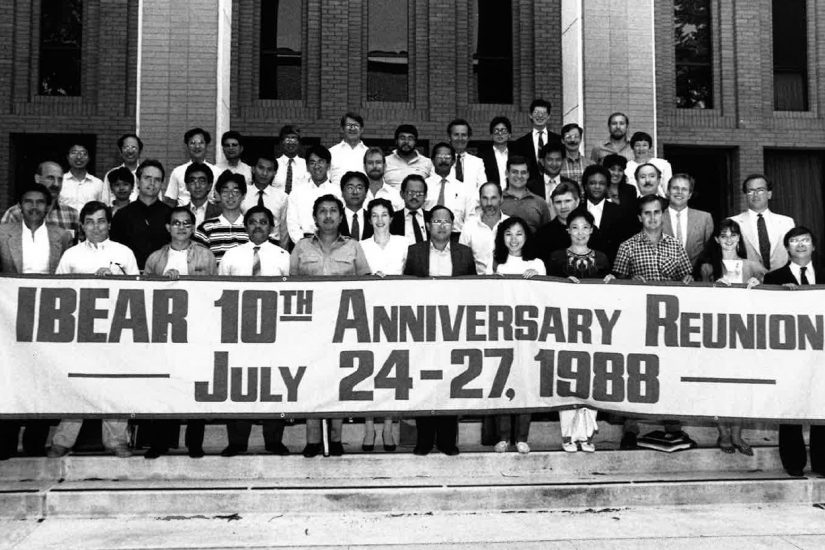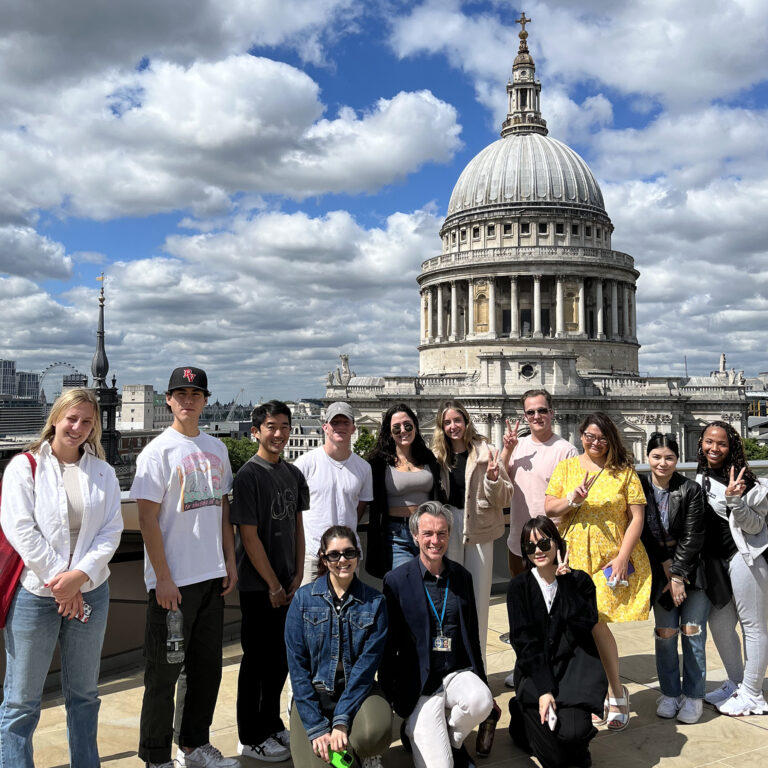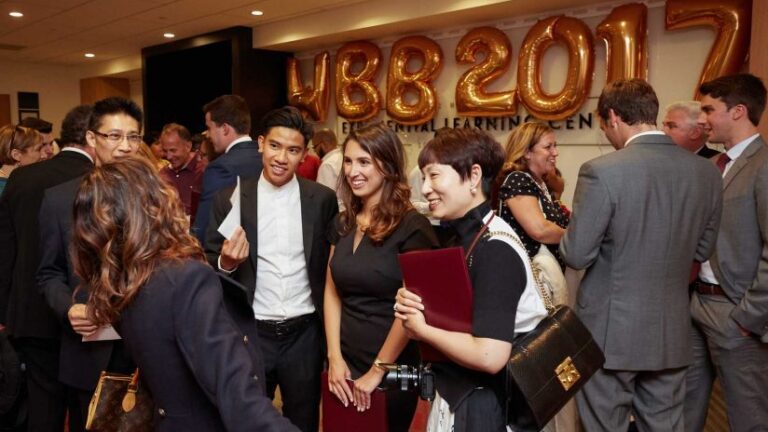
USC Marshall’s IBEAR program celebrates 40 years
USC Marshall’s International Business Education and Research (IBEAR) program celebrates 40 years of success
USC Marshall’s International Business Education and Research (IBEAR) program celebrates 40 years of success.
USC Marshall was one of the first business schools in the country to make global education a priority. This month, one of its first innovative programs for international business education celebrates its 40th year—proving the old axiom that everything gets (even) better with age.
Today, Marshall’s International Business Education and Research (IBEAR) MBA maintains its place at the forefront of global business education, continuing to push the standard it helped set for leadership and executive training back in the 70s.
A one-year, accelerated program designed for mid-career professionals being groomed to assume senior positions worldwide, IBEAR started off modestly: Its first graduating class had just 13 students. But the program gained immediate traction, and the numbers quickly grew; today, the program counts 1,800 alumni across 60 countries.
Early Vision
In a world of shrinking borders and interdependent economies, the value of an international MBA seems obvious, but it was not always so. In the 1970s, U.S. business schools were more concerned with domestic priorities. It took the particular insight of IBEAR founding director Roy Herberger, former Marshall School dean Jack Steele and other visionary USC Marshall colleagues to recognize the potential of a program that would pursue a more global approach, says Richard Drobnick, IBEAR director and assistant dean of International Outreach.
“Roy and Jack had the realization that Asia might prove to be an important economic region of the world, which sounds funny now,” Drobnick said. “But in 1977, that idea was revolutionary. China had locked itself off from the world; Korea and Taiwan were developing economies; Thailand and Indonesia were less-developed economies. Roy and Jack had the sense there was a lot to be gained by building relationships across the Asian continent—and that USC, at the gateway to the Pacific Rim, was uniquely positioned to do so.”
From its earliest days, IBEAR had a tightly-focused mission, according to Jack Lewis, who in 2010 retired as program director after 27 years with the program. The idea was to attract Asian students who worked for family-owned companies, as well as those being fast-tracked for promotion by major corporations, to create an international business center that would advance executive development and also finance faculty research. “It was the start of globalization, and IBEAR was a big deal in terms of the U.S.’s early efforts in this arena,” Lewis notes.
Central to the program’s success both then and now, says Drobnick, who served as IBEAR’s second director from 1982-1994 before taking the helm again in 2014, is its shortened duration. “We understood right away that mid-career managers simply didn’t have the time to take two years off for an MBA, so we made IBEAR 12 months long, and extremely intensive,” he recalls.
IBEAR Bonds
“Students bond through classroom and non-curricular activities, including a 10-day trip to Asia, forging enduring connections to what we call the IBEAR family,” he said. As a result, the IBEAR network expands rapidly and is noted for its closeness, keeping graduates in constant contact as they support each other to reach personal and professional goals.
“The program is like going through a crucible in so many ways; it challenges and humbles you at the same time,” said Karim Garcia ’01, a graduate of IBEAR XXIII. “You get quite close with your classmates, who are sharing the experience.”
Garcia, who is based in Manila as head of business development for Metro Pacific Investments, the largest infrastructure company in the Philippines, says he is in frequent touch with members of his IBEAR cohort. “There’s no doubt about it: It’s a bond for life.”
Beyond surviving a grueling classroom schedule, IBEAR graduates learn from each other as well.
“I was 35 when I did IBEAR, and one of the things that makes it so great is that students are older [IBEAR has a median age of 33], so you’re learning from members of your peer group who have substantial experience,” says Doug Montgomery ’03, a graduate of IBEAR XXV and vice president of category management at Warner Bros.
Growing Global
As IBEAR grew, it also evolved, recruiting American students and broadening its focus to include Latin America. Additionally, starting in 1990, Marshall’s Center for International Business gained key sponsorship from the U.S. Department of Education as one of only 33 national resource centers on international business, elevating IBEAR’s influence and prestige on the international business scene.
IBEAR’s reach and continued relevance, says Arif Ansari, professor of clinical data sciences and operations at Marshall, owes a great deal to its commitment to forward thinking.
“I’m with IBEAR students from the moment they enter the program, and throughout we are consistent about encouraging them to tackle the ‘three R’s’ of the future: rapid innovation, radical innovation and relentless innovation,” he says. “It’s what keeps our students on top—and what keeps IBEAR looking to the horizon—and beyond.”



